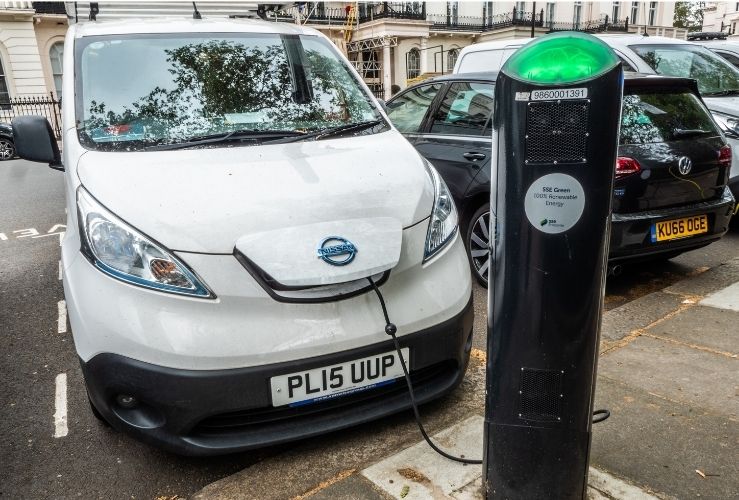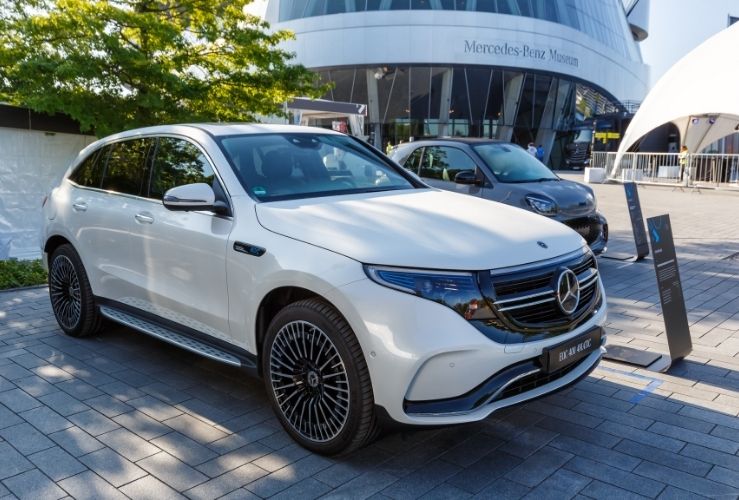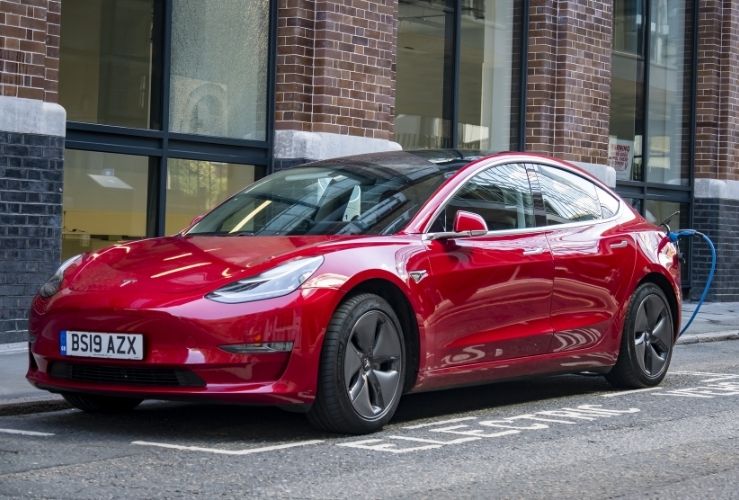If you're considering joining the electric car revolution, you're not alone. According to the SMMT, in the year to September 2021 there was a 50% increase in battery electric vehicle registrations compared to the same period last year. Meanwhile, diesel registrations fell by 77% and petrol cars by nearly 47%. Even when the economic impact of Covid and Brexit are factored in, the popularity of EV is undeniably on the rise.
As well as lower running costs, with an EV you'll be able to access 'clean air zones' free of charge - and do your bit for the environment.
New or used EV?
With more people than ever buying new EVs, the used electric car market is growing all the time.
Buying a second hand car is of course cheaper than buying new, but there are other factors to consider.
In this article we offer some tips to help you decide.

Credit: pxl.store - stock.adobe.com
First of all, is an EV right for you?
Given the slick marketing from EV firms, you'd be forgiven for thinking that EVs are a catch-all solution to modern driving.
How will you recharge it?
However, that isn’t exactly the case.
First of all, you'll need a garage, off-street parking, or somewhere to install an EV chargepoint. You should consider installing a fast charger in your home, since they are up to 60% quicker than chargers with standard UK three-pin plugs. At present you can get a grant of up to £350 to help with the cost of installing a chargepoint (which can amount to 75% of the entire cost).
Relying on the UK's charging network may not be enough: while the network is growing quickly, you may not always be able to find a vacant charger. And it’s not uncommon to find a non-EV driver parked in a chargepoint parking space at the supermarket. Add to this the fact that charge points can and do suffer faults.
Do you use motorways often?
If you can sort out the charging issue, next you'll need to think about the kind of driving you do.
If you undertake a lot of motorway journeys, you'll find an EV's battery will deplete quickly - contrary to what some EV firms will have you believe.
On the other hand, if you only make short trips around town, then an EV could be perfect for your needs.
EVs are also great for conserving energy with start-stop technology - and some can even recharge your battery while you're on the move.
Battery condition
A key consideration when buying a used car is how long the battery will keep its charge for.
Cars that struggle to keep their charge may need a battery replacement - adding to your costs.
While this can be very expensive, some carmakers offer warranties to help with replacement costs. Some car makers offer separate battery and car warranties. Some battery warranties last for eight years or more - that's longer than most car warranties. A battery warranty should give you some peace of mind - assuming it's still in force.
General condition of the EV
Other than battery condition, you'll need to examine the other mechanical components of the prospective EV.
Ensure electrics, wheels and suspension are in good order.
Reliable Used EVs
- BMW i3 - this distinctive supermini is lightweight and offers superb practicality. Owner reports have been positive so far - although punctures seem to be common. You can also opt for a range-extender (REx) edition, which features a petrol engine that acts as a generator to keep the batteries topped up. From £14,000 used.
- Nissan Leaf - Because the LEeaf was the first commercially successful EV, there are many on the used market. It boasts low running costs, good urban performance and a comfortable ride. From £6,000 used.
- Renault Zoe - even entry level versions of the Zoe are well equipped, which, when added to the spacious interior and driving refinement, make it a great option for a used EV. You can also get 100 miles out of a single charge. From £6,000 used.
 Credit: Markus Mainka - stock.adobe.com
Credit: Markus Mainka - stock.adobe.com
New EVs
Cost of a new EV
The big drawback of buying a new EV is the cost.
A new Tesla Model 3 costs around £38,900 after the Government's £3,500 plug-in car grant. A Performance version pushes the price up to around £56,900.
At the cheaper end is the VW ID.3 Pure - which offers 175 miles of range and costs around £25,000 - still a lot more than a second hand model.
A new EV will be in perfect condition
By buying new means you won’t have to worry about wear and tear inflicted by the previous owner - because there isn't one. A new EV will be in perfect working order.
Additionally, by buying new you'll be getting the latest technology.
Since battery technology is improving by the year, this could equate to longer range and shorter charging times. Some newer EVs use DC charging tech which can soak up an 80% charge in as little as half an hour.
Fast depreciation
But do bear in mind that new EVs depreciate faster than their fuel-based counterparts. In the first year alone you might lose between 15% and 35% of the value. After three years at an annual mileage of 10,000 miles, you may be looking at a 60% depreciation.
However, high-end premium models from the likes of Tesla or Mercedes may only depreciate by around 40% - due to their prestige, high performance engines and ultra-low emissions.
 Credit: William - stock.adobe.com
Credit: William - stock.adobe.com
The latest technology
Of course there's the prestige element of owning a new car, as well as being able to choose a vehicle that exactly meets our needs and preferences - eg colour and accessories.
Less time and hassle
You'll also waste less time buying a new EV from a dealership compared to hunting around for a used EV that more-or-less meets your requirements.
Leasing an EV: The leasing option
An alternative option is leasing - this means you get a new car every two or three years, so you'll be able to enjoy the latest EV innovations.
In summary
A used EV is considerably cheaper than a new one, but buying new means you have access to better range and performance.
For many, their available budget will make the decision to buy a new or used electric car fairly straightforward.




